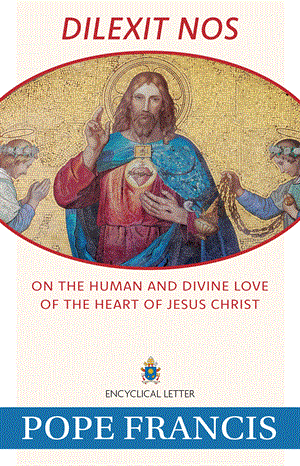
In stock
In his fourth encyclical, Dilexit Nos ("He loved us"), Pope Francis writes, at a time of profound global challenges, on the human and divine love of the heart of Jesus Christ. As Pope Francis observes, "We find ourselves immersed in societies of serial consumers who live from day to day, dominated by the hectic pace and bombarded by technology, lacking in the patience needed to engage in the processes that an interior life by its very nature requires." The Holy Father calls for a change of perspective, urging humanity to rediscover what is most essential: the heart.
In Dilexit Nos, Pope Francis invites us to reflect on aspects of the Lord's love that could illuminate the path of ecclesial renewal and resonate meaningfully with "a world that seems to have lost its heart." This encyclical, which includes reflections from Sacred Scripture and previous magisterial teachings, reintroduces the Church to the spiritually profound devotion to the Sacred Heart.
The encyclical's release coincides with ongoing celebrations commemorating the 350th anniversary of the first appearance of Jesus to Saint Margaret Mary Alacoque in 1673, when he revealed to her his Sacred Heart.
Purchase for your Kindle
Purchase for your Nook
Purchase for your Nook
| Pages | 120 |
|---|---|
| Copyright | 2024 |
| ISBN | 978-1-63966-369-9 |
| Item | T2999 |
Related Products
Dilexit Nos: On the Human and Divine Love of the Heart of Jesus Christ, Spanish
En Dilexit Nos, el Papa Francisco nos invita a reflexionar sobre los aspectos del amor del Señor que podrían iluminar el camino de la renovación eclesial y resonar significativamente en "un mundo que parece haber perdido el corazón". Esta encíclica, que incluye reflexiones de las Sagradas Escrituras y de enseñanzas anteriores del magisterio, reintroduce a la Iglesia en la devoción espiritualmente profunda al Sagrado Corazón.
Pope Francis
Item: T3000
Fratelli Tutti: On Fraternity and Social Friendship
In his third encyclical, Fratelli tutti, Pope Francis reflects on a topic of great importance: human solidarity and friendship. Following his election to the papacy, Pope Francis first greeted the world with the words fratelli e sorelle — “brothers and sisters.” In this encyclical, he continues to address all men and women as his brothers and sisters, calling us to consider what our common brotherhood requires of us.


